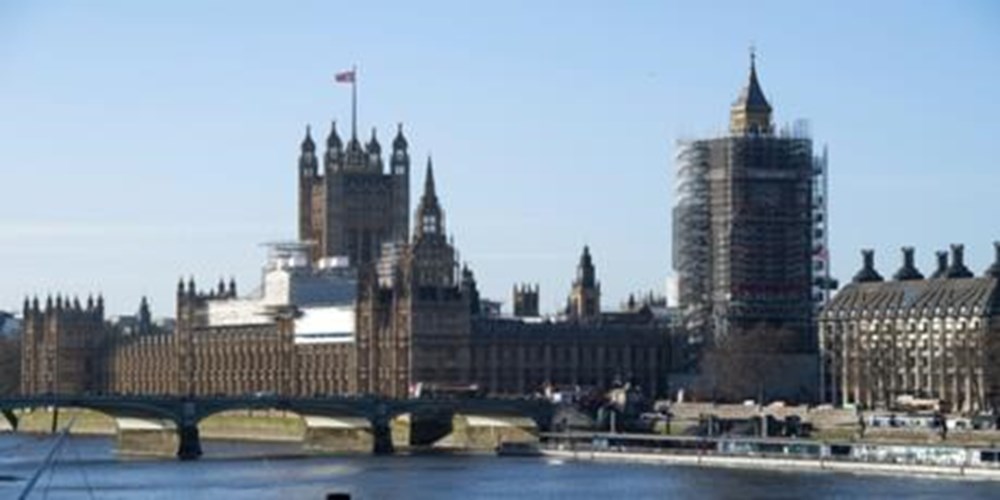Agriculture and food security: key issues for the 2010 Parliament
The future of the Common Agricultural Policy is to be decided in an era of concerns about food security
Full print version, including charts and tables (pdf 246KB)
By the end of 2010, EU discussions will begin on the shape of the Common Agricultural Policy (CAP) after 2013. In broad terms, the UK's approach contrasts with that of France. The UK favours using farm support to deliver environmental goals and trade to deliver food security. French policy is to use farm support to preserve agriculture from full foreign competition, to allow it to develop high quality products with export potential.
CAP
The CAP was developed in order to boost domestic food production and prevent a mass exodus of the rural population towards urban areas. Originally it offered to buy farm produce in several major areas, such as grain and dairy produce, at guaranteed prices that were far above the international price level.
By the 1980s the problem was overproduction rather than shortage. Over the 1990s and 2000s the CAP has dropped most of the price support in favour of direct payment to farmers based on the size of the farm. The payments require compliance with certain environmental conditions. The UK Government welcomed the shift of farm support towards payment for environmental objectives, rather than as support for increased food production.
High food prices
High food prices in recent years, especially in 2008, have led to concerns about the direction of policy. Some poor countries suffered severe problems in affording enough for people to eat. Even in the UK, food prices increased sharply, driven by increased production, transport and fertiliser costs. Some people blamed legislation in the EU and USA encouraging the growing of crops for biofuels, rather than for food.
The idea that the market will always operate effectively also came under scrutiny. Some Asian rice producers suspended rice exports in 2008. The failure of the Doha Round of world trade talks increased the probability of bilateral deals and market protection.
Food security problems may return
Prices of many (but not all) foods have declined since 2009. However, food policy issues concern the much longer term and the problems of 2008 might be repeated. A 2009 Chatham House report, Food Futures: Rethinking UK Strategy, argued that UK food security problems would return, unless action was taken. A return to rising oil prices, which adds to fertiliser prices as well as fuel costs, adds to these concerns.
In addition, climate change is almost certain to make food production more difficult. Although some cold northern areas should have a longer growing season, larger food production areas will become less efficient at food production through being too hot. The exceptionally hot summer of 2003 caused a decline of around 20% in European agricultural productivity. There are further potential problems through uncertain water supplies – floods in some areas and drought in others.
Climate change may already be affecting some major agricultural producers like Australia, where extreme temperatures may be undermining a major world supplier of wheat. A poor Australian wheat crop can increase world prices.

Government reactions to high food prices
The British Government – stated in Ensuring the UK's Food Security in a Changing World - stressed the importance of international trade. Even if animal disease limited domestic supply, access to the world market would enable a wealthy country like the UK to supply its food needs. However, Defra has put more emphasis upon food security in its policies and Chief Government Scientific Adviser John Beddington has famously pointed to the risks of a “perfect storm” of food shortages, scarce water and insufficient energy resources by 2030.
David Cameron stressed the importance of food security in a speech to the National Farmers Union in February 2008. Amongst other causes for concern he noted that a one metre increase in sea level, expected by the end of the century, would swamp nearly one third of the world's cropland.
The French Government have regularly supported the traditional CAP and fought successfully against reducing its protection for farmers. Instead of favouring increased market access, they have argued that the high food prices vindicate defence of food production within the EU. Instead of favouring more food imports, they favour a return to a CAP based upon high support prices.
What happens next?
EU farm ministers will soon have to decide upon the shape of the CAP for the years after 2013. The issues are bound to return in that debate. Countries that have recently joined the EU are expected to favour the French position, but some northern countries may side with the UK. Farmers, broadly, prefer increasing food production to providing environmental benefits, but are willing to do either. Given the tight financial constraints, there is unlikely to be the level of support available for them to do both.
